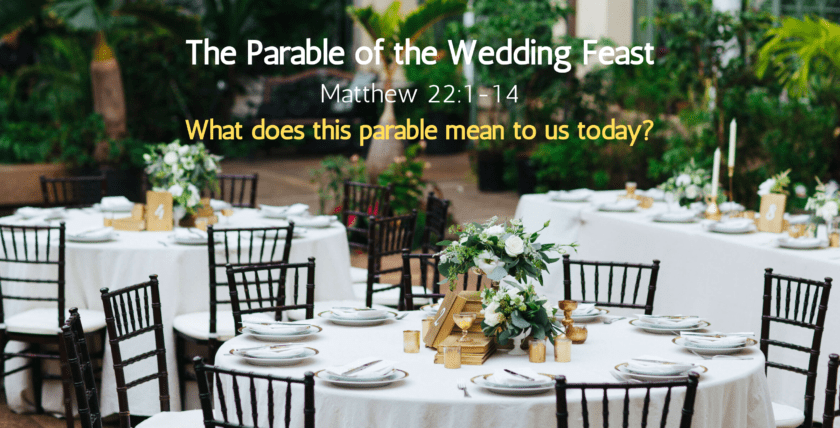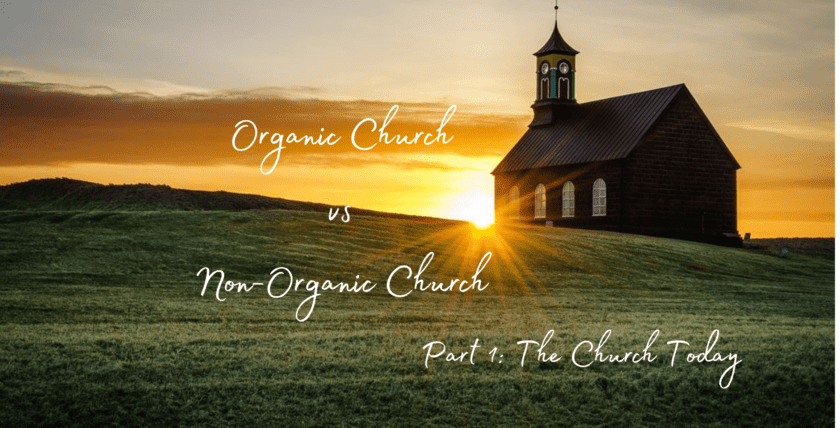The parable of the Prodigal Son is found in chapter 15 of the Gospel of Luke. It is always important when trying to understand the meaning of a passage to know the context. In Luke 15:1-2 we see that the Pharisees and Scribes are complaining to the disciples that Jesus associates with sinners and tax collectors. It is to this complaint of the Pharisees and Scribes that Jesus will respond.
It’s also important when understanding the context to know the audience that’s in front of Jesus;
The Audience Context:
- Tax Collectors; were resented by Jews for collecting Roman taxes. Seen as traitors.
- Sinners; Jews are not to associate with sinners, including eating.
- Pharisees; followed all the laws and rituals of Judaism.
- Experts in the law; are the Scribes or lawyers of Mosaic law.
- Disciples; sinners, tax collectors, Pharisees, and Scribes.
The response of Jesus to the audience:
The response that Jesus gives to the Pharisees and Scribes is to tell them three parables. It is important to understand the Prodigal Son parable to also understand the parables of the Lost Sheep (Luke 15:3-7) and the Lost Coin (Luke 15:8-10).
The Parable of the Prodigal Son (Luke 15:11-32)
The Family Decision: Luke 15:11-12
- Jewish law regarding inheritance the elder brother receives twice as much as his brother. (Deuteronomy 21:17)
- Father didn’t object.
- The older son didn’t object (glad to see brother go – jealous – brother favored).
To the Jews, the father would be irresponsible to give his son his inheritance. It would be shameful not to think he might need those resources later and society would pay the price.
There was no particular harm in the younger son asking for his inheritance. This would be acceptable in the Jewish culture at the time, even though short-sighted, but not a sin.
Freewill Choices and Consequences: Luke 15:13-16
- The father didn’t stop him. Pharisees, lawyers, tax collectors, sinners, etc., it’s your choice.
- Choices have consequences – Expected and unexpected outcomes.
- Think Carefully – better decisions can avoid rock bottom.
Living in a Gentile culture was not a sin. Many Jews lived outside of Judea.
The father recognized if the son wanted to leave, he was already gone in his heart. He didn’t try to talk him out of leaving. In this sense, the younger son represents the human desire for independence and sin.
The younger son ends up becoming a slave and feeding pigs. Pigs are detestable to the Jews. Also, he can’t earn enough money to feed himself and he has no friends to give him any food.
A Son Knows his Father: Luke 15:17-20
Rabbinic proverb says, “When Israelites are reduced to eating carob pods, they repent.”
- Realization; his condition is hungry.
- Resolve; he wants to make things right.
- Remorse; he considers himself no longer worthy to be a son.
- Recovery; father can hire him and save him.
- Return; the first step back is an act of repentance.
These steps can be applied to anyone and everyone! The younger son humbled himself and repented for what he had done and planned to return to his father. (2 Chronicles 7:14)
A Father Knows His Son: Luke 15:20-24
Father is waiting for the younger son to return home. Sees him in a distance, “runs” to him…
Rabbinic story at the time says, “A king had a son who had gone astray from his father on a journey of one hundred days. His father said to him, “Return to your father.” He said, “I cannot.” Then his father sent word, “Return as far as you can, and I will come the rest of the way to you.” So God says, “Return to me, and I will return to you.”
His father doesn’t ask questions of the son. He has compassion and unconditional love and acceptance. The father restores his son to the family, gives him clothes and a ring, and a fatted calf is prepared for a party.
The Indifferent Older Brother: Luke 15:25-27
The elder brother didn’t show love for his brother. It was his duty to bring reconciliation between his brother and his father. This neglect by the elder brother would have brought disgrace to the father.
Contrasts between father and brother: Contrasts between God and Jewish leaders
- Father was tracking his son, but his brother didn’t care what happened to his little brother.
- Father had compassion for his son, but his brother was indifferent.
- Father ran to son to meet his son, but brother strolled back home.
- Father hugged and kissed his son, but his brother wouldn’t even greet him.
- Father is happy to have his son home, but his brother is angry.
- Father forgives his son, but his brother is judgmental.
The Blindness of the Older Brother: Blindness of the Jewish religious leaders; Luke 15:28-30
- Honor your father and mother – refused his father’s request.
- Slaved for his father – salvation by works.
- Never disobeyed – self-righteous
- Angry with father – never gave him even a scrawny goat for a party.
- Jealous of brother – this son of yours, not this brother of mine.
- Judge of his brother – squandered father’s property, though it was his brother’s property.
- Not accepting the father’s will – the father could have a party anytime he wants.
The older brother is angry, bitter, and offended by the father’s actions. The elder son thought he had “earned” his inheritance, not realizing it was a gift from his father. He thought there should be no reason for forgiveness, mercy, or compassion because he did everything he was supposed to do.
The view of the Pharisees and Scribes.
How could God’s Messiah forgive and accept unholy people? The Pharisees, Sadducees, Scribes, and Priests should be having parties and the unholy people should be abandoned forever.
The Unending Grace of the Father: Luke 15:31-32
- My son – the father doesn’t love the older son any less.
- The older son made his own choices – he could do whatever he wanted.
- Reminder they are the same flesh – This brother of yours.
- Celebrate the return of the lost – a resounding theme of joy in heaven for the lost.
- Opportunity for the elder son to repent – Pharisees and Scribes could also repent.
Conclusion: I can’t exhaust all the meaning in these 3 parables. I will still learn more.
Tale of two brothers;
1st brother; young, irresponsible, short-sighted, and wants to live and enjoy life. Pays for his choices with trouble and hard times. At rock bottom, he realizes he doesn’t have to die without hope and repents and returns to his father.
Note: Maybe the younger brother is the way he is because he can’t compete with his older brother. Maybe he doesn’t want to be in the shadow of his brother for the rest of his life. It was easy for the big brother and not easy for me.
Maybe the tax collectors and sinners felt trapped in their societal class. They could never be accepted, so why try? They didn’t have the education or opportunities of the Jewish upper class.
2nd brother; is older, wiser, industrious, and determined, and takes pride in his stability and achievements. But he was jealous of his younger brother which turned into resentment, anger, and bitterness, eventually separating him from his father. The same was happening with the Pharisees, Scribes, Sadducees, and Priests. Is the same thing true of Christians? Are Christians eating and associating with the homeless, prostitutes, drug addicts, and gang members like Jesus? Why don’t they show up at church?
Which brother had the greater sin? Which brother brought the father more joy?
The Cast of the Parable:
Level 1:
The Younger Brother; played by tax collectors, sinners, disciples, Gentiles, you, and me.
The Older Brother; is played by the Pharisees, Scribes, religious leaders, and the self-righteous.
The Servant; played by Jesus.
The Father; is played by God.
Level 2:
The Younger Brother; is played by a new faith in Jesus Christ of Reconciliation.
The Older Brother; played by the old Law of Condemnation.
The Servant; is played by Jesus, the prophets, apostles, and evangelists.
The Father; is played by God.
Level 3:
The Younger Brother; is played by Gentiles and Samaritans.
The Older Brother; played by Israel.
The Servant; played by the Angel of the LORD
The Father; played by Abraham.
I could take many more levels (i.e. Able, Cain, Adam, etc.)
Levels of Life Applications;
- Everyone is a sinner.
- Every sinner can repent.
- Forgiveness is available to all by God.
- God is able to save the lost that don’t know they’re lost (coin and sheep).
- Jesus came to seek the lost, not the righteous (coin, sheep, and son).
- No matter the distance we put between ourselves and God, he is there waiting.
- God forgives sinners because he loves them and desires a relationship with them.
- How is a sinner saved? With forgiveness, grace, mercy, compassion, love, and acceptance.
- God’s righteousness is faithful and true (i.e. the brother was restored but not rewarded).
- Finding the lost brings great joy to God, Christ, and all of heaven. (people say they want to please God, then go and find someone who is lost and bring them home to their father).
Luke 19:10 and Mark 2:17
Wrap-up:
As I said in the previous episode, the parables give us a lot to think about. We can all receive something from these parables depending on our level of spiritual growth. My prayer is that we all let the Spirit of God and the Mind of Christ have their way in our hearts.


